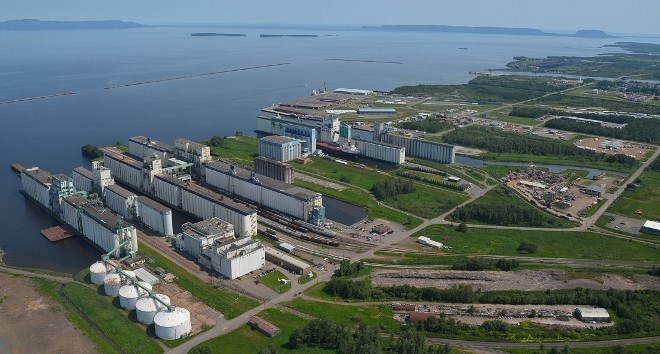The Thunder Bay Port Authority is predicting below normal grain tonnages moving through the harbour this fall.
The forecast for Prairie grain is weaker than in past years due to the drought and extreme heat in Western Canada. Crop analysts are projecting a decrease of four to five per cent in total production for the crop year.
This will likely impact tonnages at the northwestern Ontario port this fall.
In July, the port recorded 727,993 tonnes of grain moving through Thunder Bay, down from 991,499 tonnes posted during the same month last year.
Year-to-date grain shipments are just under 3.5 million tonnes of July 31. This is four per cent higher than average, but nine per cent lower than last year's peak volumes.
The authority said Canadian grain exports have decreased recently as the large carryover from the 2020 crop has been substantially moved to market.
But other cargoes shipped at the port are increasing as the global economy rebounds.
Want to read more stories about business in the North? Subscribe to our newsletter.
The authority's Keefer Terminal is reporting strong project and general cargo movement, reaching a 25-year-high.
The terminal is handling heavy-lift engines, pre-fabricated housing modules and European-made structural steel and rails headed for Western Canada.
Shipments of phosphate fertilizer destined for Western Canada are expected to continue to increase throughout the season. The commodity is critical for crop production.
The authority said a new ship on its maiden voyage recently set a Thunder Bay port record for loading wheat.
The Captain Henry Jackman of Algoma Central Corp. loaded 31,100 tonnes of Canadian Western Red Spring Wheat from Manitoba.
The cargo was shipped to Baie Comeau, Que. where it was transferred to an ocean-going vessel bound for multiple countries in West Africa.
The St. Catharines-based shipping company recently took delivery of the Chinese-built ship. The vessel's design is a third generation of the company's Equinox Class that consumes less fuel and minimizes its greenhouse gas emissions.




